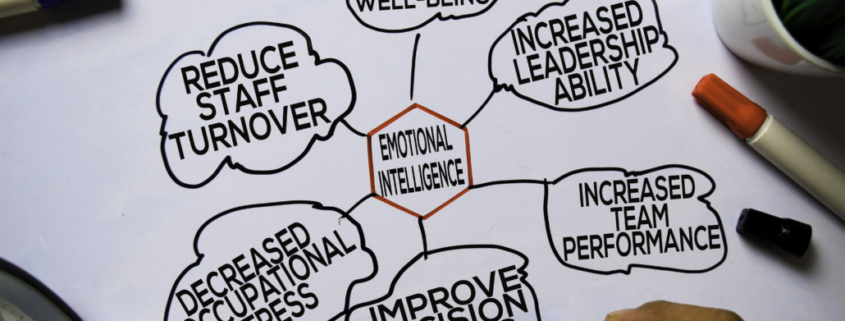Emotional Intelligence in the Workplace Creates Emotional Wellbeing
What is the emotional health and wellbeing of the company you work for or run?
This could be one of the most critical questions any organization leader or manager could ask. As you reflect on that question think about the company you work for or perhaps the ones you have worked for in the past. If you do not know the level of your company’s emotional health, survey your teams, and you will be sure to find out. It could very well be the most valuable information you collect to improve your company’s livelihood, hands down.
People are more stressed than ever in the workplace and their emotional health is being compromised. The World Health Organization has stated that we have a second pandemic going on and it is the mental well being of the work force.
If you are concerned maybe it is time to join the movement of other successful organizations that make embracing and improving workplace wellness a top priority.
Incorporating good behavior providing support for managing stress and pressure has become more than just a great idea, it has become a desperate need. Making kind behavior and supportive programs available as a must in the workplace certainly does not solve all the problems doing on currently but taking a stand for emotional well being in the workplace can make a very significant and positive difference. Much research has shown that the emotional health of any company is significantly impacted by behavior of how people treat one another. When behavior standards and well being programs and support are embedded in a company’s culture they substantially impact the prosperity of the company and the emotional health of all of the employees. If you don’t think your employees’ emotional health affects the bottom line think again. People who are unhappy with their boss or employer have lower engagement, morale and overall performance.
In my career spanning more than twenty-five years I have thousands of hours directly observing how people interact with one another in a variety of professional settings. It’s fascinating that communication seems such a simple concept but becomes the most significant barrier in relationships. Communication is everything; think about it—communication is where every relationship begins and in many instances ends.
How we communicate to ourselves or how we are communicating with another individual, group, or team directly influences how well we thrive in life. Communication can either make or break a relationship, it can create harmony or cause disruption. It also affects how we feel about ourselves in a very significant way. One of the most powerful influences of a persons health is dependent on our emotional states . How we think about our environment and the people we interact with affects how well we thrive in any situation in life. Our ability to reason and make good decisions are impacted by how well we are feeling about our daily interactions. They are extremely powerful and shape the experiences that we have every moment of every day.
I have spent years observing people and their interactions with one another in the corporate and medical field as well as my own private practice. The most obvious and glaring problem many businesses constantly struggle with is communication breakdowns and barriers. This commonly results in frustration, resentment, misunderstanding, turnover, and more. Understanding and learning how to develop certain skills, which are often referred to as “soft skills,” have been proven to impact a greater level of success in desired outcomes. Some of the many outcomes improved include productivity, less absenteeism, less turnover, happier and more engaged employees and customers, employee and customer retention among several other benefits.
For years I have been fostering solutions to address the area of how people communicate with one another and the competency of those behaviors or soft skills. These solutions embody behaviors that encompass respect, listening, empathy, and compassion which all relieve stress and contribute to better well being. Developing soft skills is also referred to as developing a person’s level of Emotional Intelligence. Emotional intelligence is all about how effectively we communicate with each other based on our level of self awareness and self regulation.
The most valuable asset of any business are the people. One would naturally think that putting emphasis and focus on communication in the workplace be a top priority but unfortunately this area is generally left to it’s own devices with little or no development, training or support. Unfortunately, I have observed more people that are unhappy than are happy with their work environment, boss, or team. Since our environment directly impacts our mental and emotional health and well-being this is an area that has huge opportunity to increase the success of any company.
If you are in any business that involves people and sustaining relationships then enhancing and developing communication and good behaviors could well be the most profitable business objective you can make. Companies that have embraced developing soft skills very soon realize the many benefits of investing in this area.
One of my favorite quotes is from John Dewey, who was regarded as one of the greatest American philosophers and one of the most prominent American scholars in the first half of the twentieth century: “The deepest urge in human nature is the desire to be important.”
At the core of every human being is a natural need and desire to connect, feel heard, and valued. It is the common threads that unite us as human beings, naturally wanting and needing authentic kind and caring human connection and understanding.



